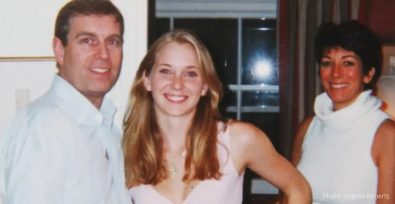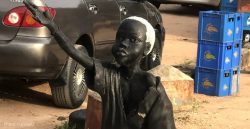When people hear “human trafficking,” they often imagine scenes of abduction, locked rooms, or smuggling across borders. But the reality is far more complex—and sometimes not evident to the victim. As disturbing allegations emerge in the P. Diddy trial, a recent USA Today opinion piece sheds light on what trafficking can actually look like—and how victims can use this case to recognize they’re being trafficked.
The disconnect between movies and reality
Hollywood loves a dramatic rescue story: a young woman kidnapped by a monstrous trafficker and saved just in time. Other portrayals romanticize the commercial sex trade. But these images create a distorted picture of exploitation—one that can prevent real survivors from seeking help. Lenore Schaffer, chief program officer at Restore, an organization supporting trafficking survivors, said:
“I’ve worked with victims that initially didn’t understand they were being trafficked—they just thought this is what they had to do to hustle and get ahead,”
Trafficking isn’t always loud or violent. It often unfolds slowly, through manipulation and coercion. Survivors are groomed, emotionally controlled, and economically trapped. It happens in everyday places—in cities and neighborhoods just like ours. Men in positions of power often target vulnerable women, relying on emotional pressure rather than force. Schaffer continued:
“Victims will sometimes have an entire lifetime of being conditioned to normalize the objectification of their bodies. Traffickers know how to capitalize on this.”
Recent allegations against music mogul Sean “P. Diddy” Combs illustrate this reality. The BBC reports that Cassie Ventura, Combs’ former partner, testified in court that he sought to control every aspect of her life—rewarding her with expensive gifts only to take them away as punishment. She said he coerced her into participating in sexual encounters known as “freak-offs,” which she agreed to to make him “happy.” These alleged encounters, she testified, took place in cities around the world, including Los Angeles, New York, Las Vegas, and Ibiza, Spain.
88% of trafficking survivors are Black and Latina women
Media portrayals tend to center white women as the typical trafficking victims. But the reality looks different. According to Restore, Black and Latina women account for 88% of their trafficking survivors. The failure to reflect this truth in films and television means the public—and even victims themselves—may not recognize trafficking when it happens.
Meanwhile, pop culture often trivializes or normalizes exploitation. The USA Today article points out that Three 6 Mafia’s Oscar-winning song “It’s Hard Out Here for a Pimp” portrays pimping as a gritty hustle rather than a violent system of control. One popular ice cream flavor, “The Salty Pimp,” remains a top seller at Big Gay Ice Cream Shop, despite criticism for making light of sexual exploitation.
Turning exploiters like pimps into punchlines or Halloween costumes makes it harder to detect—and easier to excuse—their real-life abuse.
Moving beyond the stereotypes
Traffickers often hide behind gifts, status, or false promises. Some survivors stay with their exploiters for years, believing the relationship is transactional rather than abusive. One survivor, Schaffer recalled, received expensive gifts and introductions to industry contacts from her trafficker. Even though she knew she was being sexually exploited, she didn’t consider herself a victim of trafficking.
This is the hidden reality of modern trafficking: it doesn’t have to involve chains or captivity. Often, it’s emotional, relational, and deeply deceptive—like in the case of P. Diddy and his former partner, Cassie Ventura.
To effectively tackle human trafficking, we must move beyond sensationalized myths. That means listening to survivors, learning to spot the signs of exploitation, challenging harmful stereotypes, and holding to account the systems that allow exploitation to thrive in plain sight.
Learn more about trafficking for sexual exploitation here, the myths surrounding it, and the work Freedom United does to build resilience against it.







Freedom United is interested in hearing from our community and welcomes relevant, informed comments, advice, and insights that advance the conversation around our campaigns and advocacy. We value inclusivity and respect within our community. To be approved, your comments should be civil.
https://www.theguardian.com/commentisfree/2025/may/16/diddy-lawyers-defense-cassie-ventura Another interesting article about the ‘Diddy’ trial and his Defense calling it ‘mutual abuse’.